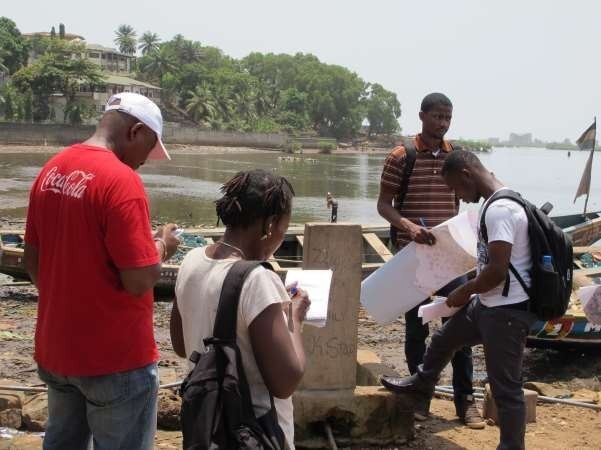Mapping for change - hazards, vulnerabilities and capacity to act in Freetown
A three-day capacity building workshop 15-17th March 2017 on building collective capacity to disrupt urban risk traps to enhance the capacity of local disaster risk management structures in Freetown, Sierra Leone in order to monitor and document the processes that drive risk accumulation over time and to appraise the practices deployed and resources mobilized to mitigate, reduce and prevent risk has just been concluded.
The workshop was attended by 40 participants including informal settlements community residents, Federation of the Urban and Rural Poor (FEDURP), Disaster Management Department, Environmental Protection Agency and NGOs.
In summary, the objectives of the training delivered were:
The workshop was attended by 40 participants including informal settlements community residents, Federation of the Urban and Rural Poor (FEDURP), Disaster Management Department, Environmental Protection Agency and NGOs.
In summary, the objectives of the training delivered were:
- To corroborate the boundaries of informal settlement, administrative areas and wards.
- To consolidate and validate the knowledge produced so far by SLURC in relation to the hazards and vulnerabilities affecting informal settlements in Freetown and any existing information at ward level.
- To identify and evaluate the capacity to mitigate, reduce and prevent risk of local organizations, individual households and state agencies.
- To equip participants with skills to map (both manually and through mobile processing application like Ramblr) and systematically monitor the above conditions through the tool ReMapRisk.

